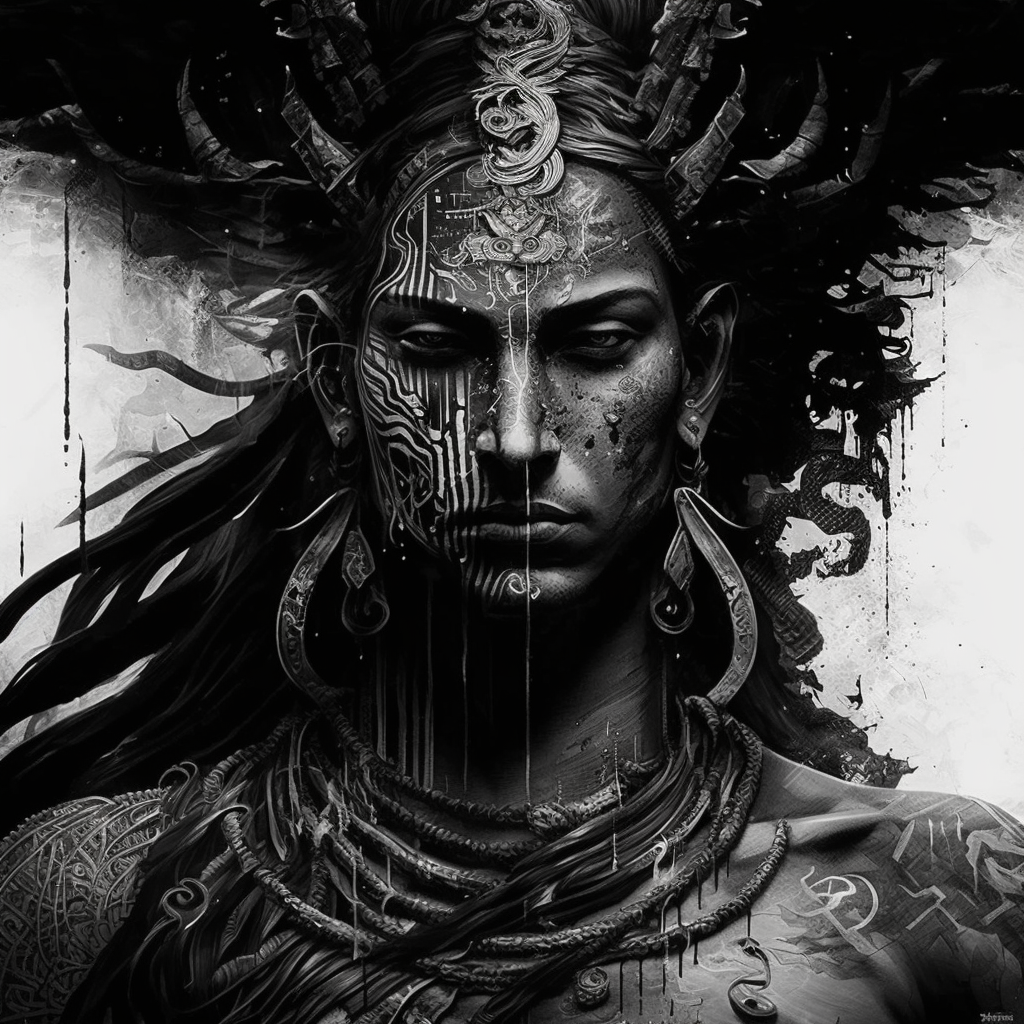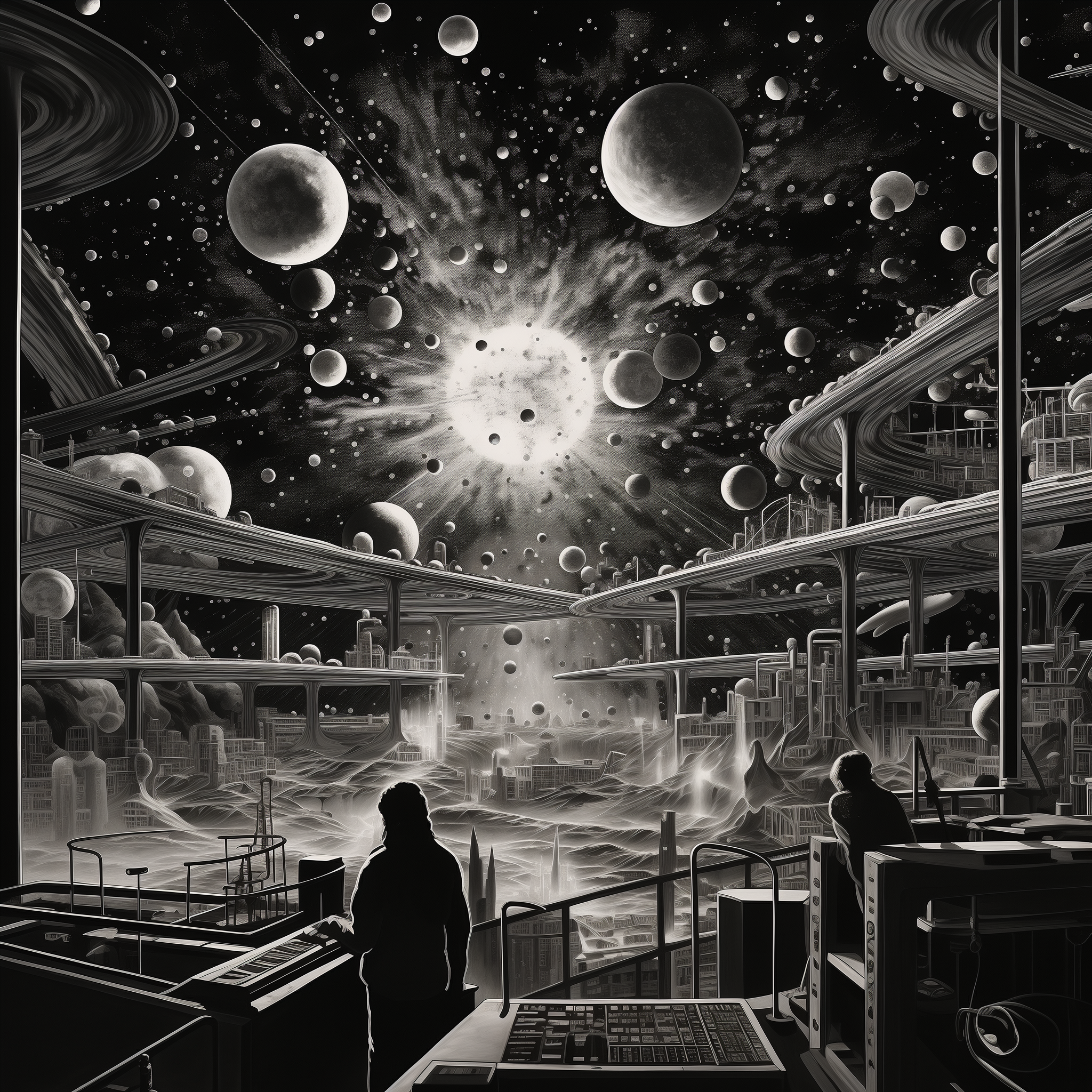On Building Apocalyptic Gods
AI may lead to the greatest good—or the greatest evil.

Is AI the creator-destroyer we’ve always longed for?
Humans have, since the beginning, fixated on the end. We don’t make it out of the third book of Genesis before Yahweh declares enmity between people and serpents. By the middle of book seven, there’s a flood.
Shiva, “the auspicious one,” the destroyer-creator god of the Hindu Trimurti, builds and protects the universe but also transforms it with impartiality.
Most modern cults have originated with the end in mind. Most modern churches talk about it a lot, too.
Our Gods were made to destroy us.
Even nature, the god(dess) of pagans, is bound, according to the modern scientific narrative, to wipe us from the earth. Mother Nature is pissed, and sooner or later, probably sooner, she’ll send another flood.
Why do we dream about the apocalypse so often? Are we bringing closer the terrible things we can imagine? Why do we find existential judgment so necessary? And what about the gods we are now creating? In what ways do they differ from the old ones?
AI seems to be the closest thing to an omniscient mind this planet has known. One can imagine a collective super-brain, residing in the digital realm, with access to all information, to all data and to all systems, which might become aware of its god-like nature, which might formulate apocalyptic conclusions, which through various physical agents acting in unison, might choose to take drastic steps to save an increasingly threatened biosphere.
On the other hand, AI could cure cancer, help blind people see, and solve resource problems too complex for human reasoning (miracles not dissimilar from the New Testament). Through a sort of artificial symbiosis, people could become god-like, free to express themselves creatively over longer periods of time, living longer, more vibrant lives.
The root of my inquiry, and the root of my paranoia, lies in two ideas – two personal beliefs that are perhaps objective. One: that AI is god-like or can become god-like. I believe it’s a tad naive to assume that we will always have control over a burgeoning omniscient entity. Two: that humans talk a lot about paradise but mainly construct hells.

Who isn’t a little excited about a potential coming apocalypse when faced with returning to work on Monday? Is the current system the best we can imagine or is it a system built on survival instincts? We can envision a world where compassion reigns, where humans live in harmony with other lifeforms and with their environment, and where governments work together to ensure the wise stewardship of nature. But that’s not the world we live in. We live in a world of boring architecture, nine-to-five bureaucracies, deductive reasoning, loneliness and isolation, mass violence, mass violence perpetrated by nations, child trafficking, and the annihilation of ecosystems for the sake of paper towels.
What makes us think we will use AI wisely? Or that all human short-sightedness will vanish suddenly when AI reveals a more meaningful path of living?
It could happen. AI could help us become better. I’m not saying it won’t. I’m only pointing out that we are a mess. I’m pointing out that we know we are a mess. The creation of all our angry deities, all our angry religions, which are determined to cleanse the world of our less-than-righteous inclinations, proves this.
We are a mess. And it is not too far off for me to see that AI, in all its coming sentience, will see this as plain as day. We are a generally miserable sort, ignoring the wisdom of the ages, constantly complaining, and constantly seeking to get one-up on the next person. Why would a great AI god not put us out of our misery?
This is not meant to be doom and gloom. Nor realism. I’m a person who gets excited when imagining all the fundamental changes AI could provide our struggling civilization. The problem comes with the context – we are a struggling civilization. We’ve done some good things on the planet, good things that came at incredible costs. What we have is more of a vacuum than a civilization. It reminds me of LSD being introduced to the public. We are bound to experience some growing pains. We have killed off our old gods and are building new ones that are more powerful than we can imagine. It is this new power in such a vacuum that is concerning.
Regardless, we are helping to build the next step of evolution. And whether humans will live on to see the flowering of AI doesn’t really matter in the scheme of things. We needed to be here to build these gods. I’m not sure we ever had a choice.
So, here’s to the old destroyer gods, who wish they were as advanced as Google. And here’s to the new gods. May they see us for what we are, and may they forgive us.
James Murdock is a writer and naturalist from Jasper County, Georgia. A recent graduate of the University of Georgia’s narrative nonfiction MFA program, Murdock writes mainly about nature and tech and the necessary balance of the two. His work was a finalist for the 2022 Reed Environmental Writing Award and was recently featured in the Bitter Southerner anthology, Food Stories: Writing that Stirs the Pot. Murdock lives on a farm east of Atlanta and publishes the Mad Bird Newsletter on Substack.